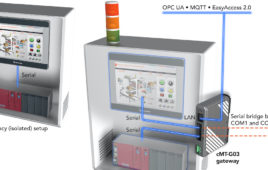 New Jersey is one of only three states to offer paid sick leave—which President Barack Obama will address at the State of the Union tonight, along with net neutrality, competitive local broadband, and cybersecurity.
New Jersey is one of only three states to offer paid sick leave—which President Barack Obama will address at the State of the Union tonight, along with net neutrality, competitive local broadband, and cybersecurity.
At 9 p.m. on Tuesday, Jan. 20, the President will announce several initiatives to promote paid medical and family leave. He will call on Congress to pass the Healthy Families Act, which would allow working Americans to earn up to seven days a year of paid sick time. The goal for this program is to help and encourage states and municipalities to create and manage their own paid leave programs.
In addition, Obama will sign a Presidential Memorandum that will ensure that most federal employees have access to at least six weeks of paid sick leave when a new child arrives by allowing new parents to advance sick leave, and propose that Congress offer six weeks of paid maternity and paternity leave.
The United States is the only developed country in the world that does not offer paid maternity leave.
The above mentioned three states, California, Rhode Island and New Jersey, do offer medical and family leave.
The State of the Union may also include the President’s goals for telecommunications and accessible wireless internet.
Net neutrality
He is in support of net neutrality, and what the President calls “lowering the cost of launching a new idea.”
In a statement, he said, “I believe the FCC should create a new set of rules protecting net neutrality and ensuring that neither the cable company nor the phone company will be able to act as a gatekeeper, restricting what you can do or see online.”
In November, he requested that the FCC “implement the strongest possible rules to protect net neutrality,” by ensuring the following:
· Internet Service Providers (ISPs) should not block a consumer’s access to any legal website or service
· ISPs should not be able to intentionally slow down or speed up web content
· The FCC should make full use of its transparency authorities to apply net neutrality rules to other points of interconnection between the ISP and the rest of the internet
· No service should be deemed low priority because it does not pay a fee.
The president said that these rules should apply to wireless broadband as well. To enable this, he suggested that the FCC should reclassify consumer broadband service under Title II of the Telecommunications Act.
“This is a basic acknowledgment of the services ISPs provide to American homes and businesses, and the straightforward obligations necessary to ensure the network works for everyone — not just one or two companies,” Obama said.
Local broadband
Wireless is also in the public mind during the State of the Union. On Monday, Jan. 13 in Cedar Falls, Iowa, the President announced his support for local broadband infrastructure, including ownership of networks, in order to provide fast, accessible internet service.
This will also involve presidential appeal to the FCC, in order to address barriers inhibiting local communities from responding to the broadband needs of their own communities.
The White House also recommends Next Century Cities coalition, a nonpartisan network pledging to bring fast, community-supported broadband to towns and cities.
Cybersecurity
After attacks on companies like Home Depot and Sony, Obama has been addressing cybersecurity and personal privacy in the lead-up to the State of the Union.
He’s urged Congress to take steps to “pass additional legislation to increase information sharing with the government, modernize the tools needed by law enforcement to fight cybercrime, and standardize the requirements for when companies must notify customers of data breaches.”
A legislative proposal encourages private companies to share cyber threat information with the Department of Homeland Security’s National Cybersecurity and Communications Integration Center (NCCIC), which would then pass it on to other appropriate government agencies.
Personal privacy is a controversial topic. The White House’s statement addresses it by requiring private business to take measures such as “removing unnecessary personal information and taking appropriate measures to protect any personal information that must be shared.”
Other proposals address a crack-down on the sale of botnets, and propose criminalizing the sale of stolen U.S. financial and credit card information overseas.
In addition, slight change may be on the way for how companies report possible data breaches to their customers. An updated proposal is in place to simplify and standardize the 46 state laws that contain data breach reporting requirements into one federal statute.
A White House Cybersecurity Summit will take place on Feb. 13 at Stanford University.
The White House describes the various cybersecurity plans as “mutually reinforcing.” Cybersecurity is likely to be addressed during the State of the Union after several cyberattacks in 2014.
In addition, notable science and technology guests likely to watch the State of the Union from the First Lady’s box include sea level rise researcher Nicole Hernandez Hammer, career technical education teacher Katrice Mubiru, United States Digital Service computer scientist Kathy Pham, and astronaut Scott Kelly.
Filed Under: M2M (machine to machine)




